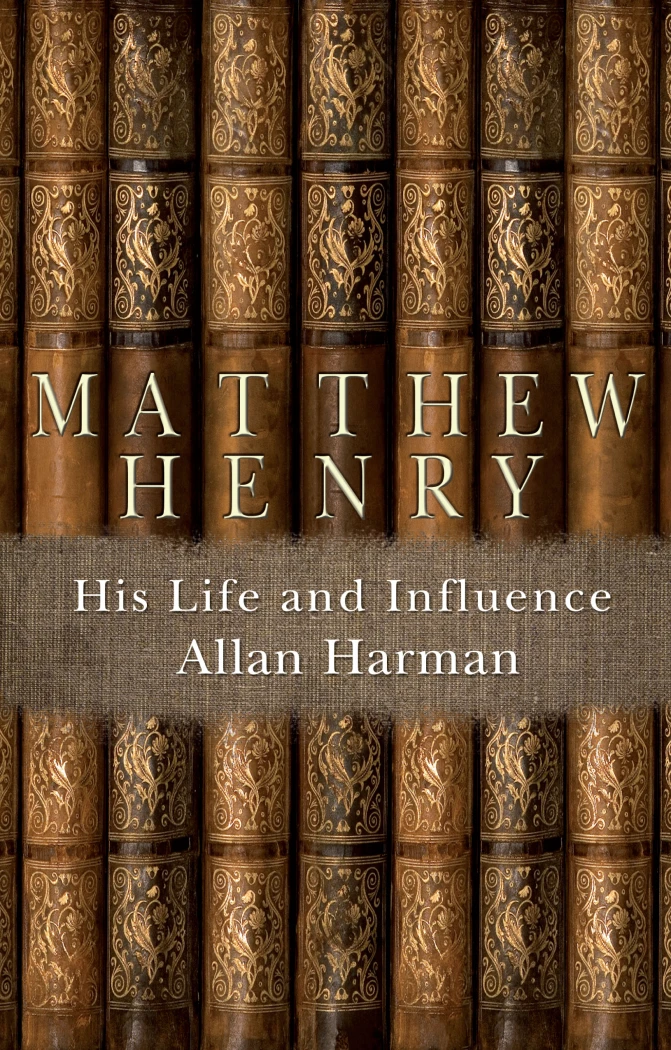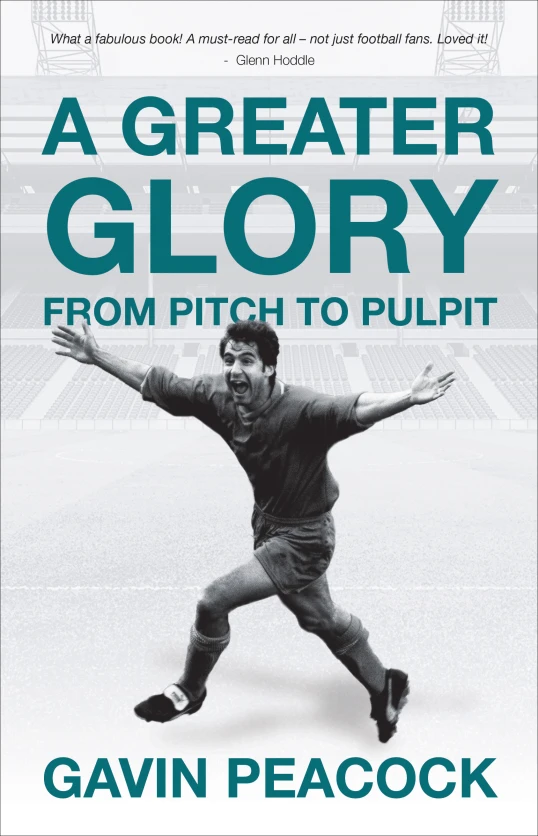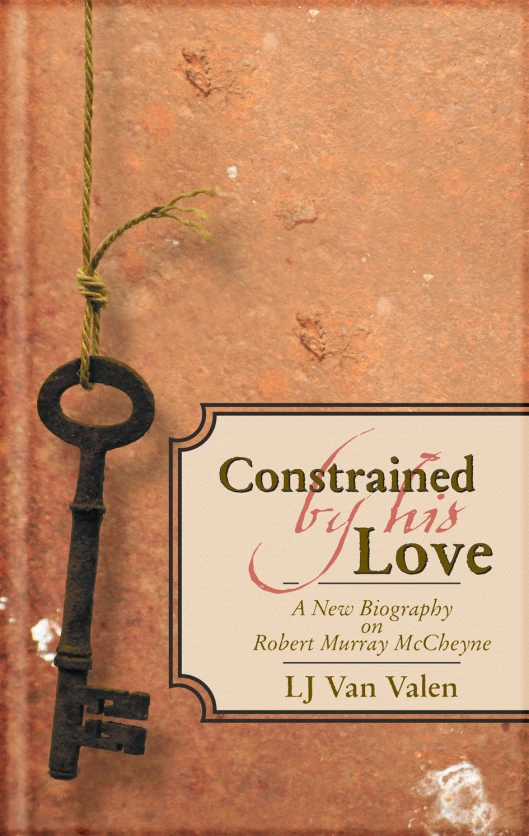£9.99
Price per book for 1+ copy
Description
Matthew Henry (1662–1714) is highly–valued by contemporary preachers and Bible users. Here we get a closer look at the life of Matthew Henry by an author who has had a life–long interest in Matthew Henry and his writings. Matthew Henry was the son of a Puritan pastor who had been silenced by the government of the time. Nevertheless Philip Henry, a godly man reared his family on Christian principles and Matthew followed the Lord from an early age. Although it was difficult to find suitable ministerial training, Matthew Henry eventually studied for the ministry. With government opposition relaxing, he became a Presbyterian pastor in Chester in 1687 and later in London from 1712. It is astonishing to note the amount of preaching and writing that he accomplished despite suffering from ill–health and knowing intense sorrow in his family life.
Endorsements
Christians of our own day, and especially preachers, will find much in this handsomely produced volume to inspire them and to set an example for thorough, faithful, practical and applied exposition of the Word of God. It will stand as a good and necessary corrective to the largely shallow preaching and publishing of the present time. But more importantly it will bring us to the realisation that those who preach the doctrines of grace should not do so as 'chosen frozen', but as 'warm Reformed'.
New Life Magazine
of great spiritual value. Henry deals with subjects such as pardon, peace, grace, afflictions, death and heaven from a covenantal perspective. His notes are relatively full, and with Harman's unobtrusive editing (including translation of phrases in Greek, Latin and Hebrew), are easily read. Much more than a historical curiosity, these sermons by the great biblical commentator are full of sound theology and helpful personal application.
THE COVENANTER WITNESS
"Allan Harman's biography of Matthew Henry recounts the life of this faithful pastor, while also opening a window into the world of the 17th century English Puritans, whose heir Henry was. Henry's life spent in service for God and communion with Him is an example needed in the 21st century church, and gratitude is owed to Allan Harman for introducing this godly man to us."
Diana Lynn Severance
A historian with broad experience teaching in universities and seminaries, Spring, Texas
To anyone who can read this brilliant biography without being humbled, challenged, inspired and motivated to 'press on toward the goal', I have only one thing to say - read it again. I am struggling to think of any biography that has spoken so clearly to me and it would be impossible for me to commend it too highly."
John Blanchard
Internationally known Christian preacher, teacher, apologist and author
For nearly three hundred years, the most widely used and respected whole Bible commentary has been Matthew Henry's Exposition of the Old and New Testaments. Matthew Henry teaches the Bible in simple, memorable phrases, aiming to both inform the reader and promote deeper devotion to Christ. His Christ-centered approach, clarity of thought and pastoral emphasis on applying the text have kept his work in demand these many years. Yet compared to the authors of other comparable Christian classics, we remember very little of Matthew Henry the man. So it was with a mixture of curiosity and interest that I picked up Matthew Henry: His Life and Influence by Allan Harman (Christian Focus, 2012).
The commentaries of Martin Luther and John Calvin, the sermons of George Whitfield and Charles Spurgeon, and the writings of John Bunyan and Jonathan Edwards remain as popular among Christians as ever-and these men are remembered, with numerous biographies available for each. For Matthew Henry, only one or two reprints of old biographies are available, as any search of Amazon.com or Google Books can verify. So it was with a mixture of curiosity and interest that I picked up Matthew Henry: His Life and Influence by Allan Harman (Christian Focus, 2012).
I wasn't sure what to expect, as I thought this book was just a brief overview of Henry's life and a discussion of his legacy. I was pleased instead to find a thoroughly researched, well-written biography of Matthew Henry. Harman details the life of Philip Henry, Matthew's father, and the difficulties facing nonconformist Puritan ministers in late seventeenth century England. He goes on to detail Matthew Henry's life and ministry before focusing on his writings and lasting influence. Along the way he provides excerpts of Henry's sermons, diary and letters, to fill out the portrait of his life.
Matthew Henry's life and ministry
Matthew Henry was born in 1662 to a Puritan minister's family. His father, an Oxford-trained minister, lost his church due to the Act of Uniformity, ultimately never returning to a pulpit ministry. Instead he trained his children, and conducted services for his own house and servants and took many a preacher boy under his wing. Nearly all of Matthew Henry's schooling, which included training in Greek, Latin and Hebrew, came at his father's hand. Matthew Henry took the pastorate of a Presbyterian church in Chester, where he ministered for 26 years, before moving near London. Henry was sickly most of his life, and endured many personal trials. He lost his first wife and several children to illness. His oldest son rejected Christianity, even taking his mother's maiden name as his own. Henry died in 1714, just 2 years after moving to London for greater ministry opportunities. Yet in the midst of a busy ministry, which saw Henry give numerous sermons or lessons each week, he found time to write what would become the most loved commentary on Scripture in the English language.
Matthew Henry's writings and legacy
Henry's Exposition was published in a series of volumes, beginning in 1706 up through his death in 1714. It took him just under 8 years to write his notes on the Old Testament, and he had just finished the Gospels and Acts (in 2 years) before his death. He left detailed notes on Romans and Revelation, and since he had also preached through both testaments several times in the course of his ministry, some of his friends completed the sixth volume of the commentary after his death. Besides his commentary, Henry wrote a widely-used children's catechism, a book of family hymns (some set to his own translations from the Hebrew), a biography of his father Philip Henry, and an influential book on prayer (A Method of Prayer). Besides these he published some pamphlets, other devotional books and some of his sermons. His last published book betrays the emphasis of his life and ministry: it's title was The Pleasantness of a Religious Life Opened and Improved; and Recommended to the Consideration of All, Particularly of Young People. Harman's comments on this book are worth repeating:
Modern readers have to understand that this book encompasses the Puritans' vision of the Christian life. They were not morbid and unfeeling. Rather, serving God was with them a thing of the highest joy. Matthew Henry expressed the Christian's pleasure in God as one 'which has no pain attending to it, no bitterness in the latter end of it; a pleasure which God himself invites you to, and which will make you happy, truly and eternally happy, and shall not this work for you?' (Kindle location 3263-66)
Matthew Henry's commentary has been praised by many down through the years. Charles Spurgeon recommended that his students read it through at least once, preferrably during their first year of ministry. John Ryland, a Baptist pastor of the eighteenth century, said of Matthew Henry's commentary "a person cannot begin to read without wishing he was shut out from all the world, and able to read it through, without stopping" (Kindle location 3507-10). Harman takes pains to demonstrate the influence of Matthew Henry on Jonathan Edwards, John and Charles Wesley, and George Whitfield. There certainly is evidence that these men drew from Henry's expository "well" as they carried out their own ministry. The widespread availability of Henry's commentary, in abridged or unabridged format, and online or coupled with Bible software programs such as e-sword is the definitive statement of Henry's lasting legacy. It is arguably the most accessible commentary to the average Bible reader today, and it is indeed average Bible readers for whom Henry wrote his Exposition.
Evaluation of the book
Allan Harman has done the Church a service in refocusing attention onto Matthew Henry, whose commentary has been such a perpetual blessing for so many. The book reads easily, although at times some of the details that a researcher revels in, may get in the way of the account. Harman has written essays on various aspects of Matthew Henry's life or writings, and at times it seems that he has strung together different pieces into one book. This leads to some noticeable repetition in a few spots.
Harman brings out quite a few interesting tidbits that are not widely known. Henry worked on the the last half of the book of Ezra for his commentary in the middle of the night when his wife was in labor!! He also brings out the fact that Charles Wesley's hymn "A Charge to Keep I Have" is based on Henry's comment on Leviticus 8:35. He also notes that from our perspective, Henry should have spent more of his free time with his family and looked after his health more. Harman also includes pictures of Henry's old church, his study, and other places of interest.
Another fault of the book might be how Harman spends so much time detailing Matthew Henry's childhood home and family life from when he was a child, but so relatively little time on Henry's own home and his time with his children. Perhaps this is due to having less resources to work with, as Matthew Henry's diary has not survived and we are dependent on quotes from earlier works for this information. On the whole, the book is solidly done and accomplishes what it sets out to. Henry's life is detailed, we are transported back to seventeenth century England and the world of the Puritans, and we even imagine ourselves in the pews of his church in Chester.
This biography will encourage many, myself included, to pick up Matthew Henry's commentary again and spend some time reading through it. And it will also lead to a greater appreciation of the lasting impact of a simple ministry in a country church-and of a life well lived. Henry himself pointed out shortly before his death "that a holy, heavenly life, spent in the service of God and communion with him, is the most pleasant and comfortable life that anyone can live in this world" (Kindle location 3706-8) Matthew Heny lived such a life, and this is why studying Henry's life is so worthwhile. May God give us more men like Matthew Henry!
Disclaimer: This book was provided by Christian Focus Publications for review. I was under no obligation to offer a favorable review.
Bob Hayton, St. Paul, MN (FundamentallyReformed.com)
This volume is highly recommended for personal spiritual reading, for the student of the history of preaching (they are after all an outstanding example of consecutive puritan preaching), as a guide to an accurate theological understanding of some of the main themes of the Bible, and to provide much inspiration for sermon construction and preparation.
THE REFORMED THEOLOGICAL REVIEW
"This is a fascinating and well researched biography of one of the great fathers of expository preaching. It will refresh the spirit of all who read it."
John Benton
Director of Pastoral Support, The Pastors’ Academy, London Seminary, London, UK
"Allan Harman's biography puts in our hands a wealth of information about Matthew Henry. Here we discover his godly father, Philip Henry, his upbringing during times of persecution, and his faithful pastoral ministry in Chester, England. This book will be of great interest to historians, students of the Puritans, pastors, and thousands of others who continue to benefit from Henry's Commentary."
Joel R. Beeke
Chancellor, Puritan Reformed Theological Seminary, Grand Rapids, Michigan
It is exactly 350 years since Matthew Henry was born. My edition of his world-famous Commentary on the whole Bible extends to six large volumes and was published 175 years ago. I have prized and read and quoted it for almost 60 years, but I knew little or nothing about Matthew Henry's life. Allan Harman has put the whole Christian world in his debt by researching and writing this excellent and fascinating biography of a man outstanding in scholarship, preaching, prayerfulness, godliness and faithful pastoring of the same church for twenty years. Here we learn of his home and of the great privilege of being a son of his pastor, mentor and model, Philip Henry ('He brought up his children in the fear of God, and with much tenderness', Matthew tells us). His life had many trials and sorrows personally, and he lived through a most difficult period of church history (his birth coincided with the year of the Great Ejection). But his was a life of extraordinary fruitfulness. I found the story enthralling and deeply encouraging, and I earnestly hope that the book will have the widest readership. I for one am heartily grateful to Allan Harman and Christian Focus for it.
Eric Alexander
Conference speaker and formerly minister St George's Tron, Glasgow for 20 years
Author
Allan Harman has had a life-time interest in exposition of the biblical text. He is Research Professor at the Presbyterian Theological College in Melbourne, Australia. He has lectured and preached in many countries and served as the senior editor of the Reformed Theological Review, Australia's oldest theological journal until he retired at the end of 2013.
Specifications
ISBN 9781845507831
Author Allan Harman
Imprint Focus
Category History & Biography
Series Biography
Page Count 208
Width 216 mm
Height 138 mm
Weight 0.265 kg
has been added to your basket!
copies /







